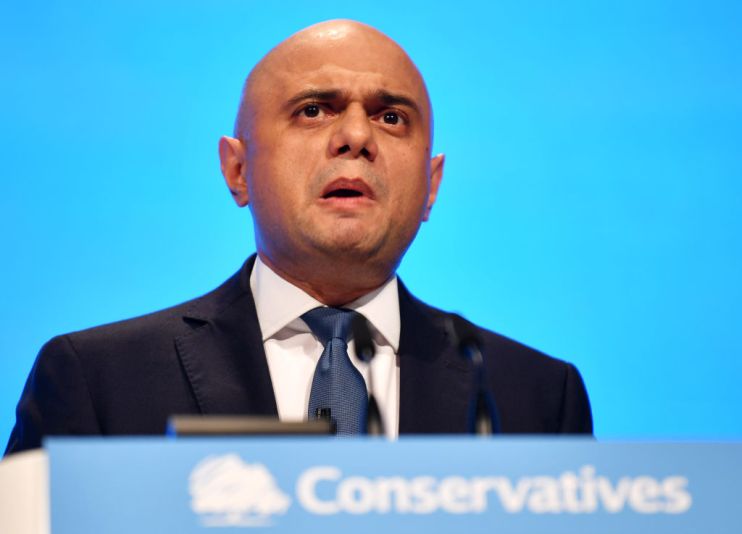Government almost matching Labour’s spending pledges, says IFS

The government is set to break its own spending rules next year, the Institute for Fiscal Studies (IFS) think tank has warned, with its plans now closer in cost to Labour’s 2017 manifesto pledges than its own from that year.
Read more: Sajid Javid confirms budget will take place later this year
The IFS today laid out in stark terms in its annual “green budget” spending report how the Conservatives have moved away from austerity and closer to Labour’s spending plans, which ex-chancellor Philip Hammond in 2017 labelled “a blueprint for crashing Britain’s economy”.
The report comes with British politics locked in crisis but with new chancellor Sajid Javid due to expand upon his recent spending pledges in a full budget before April.
Government borrowing is set to be over £50bn next year, the IFS said. This is thanks to Javid pledging £14bn extra public funding in his recent spending review and a change in student loan accounting adding £13bn to borrowing.
This spending – more than double the borrowing projected under ex-chancellor Philip Hammond in March – would take the deficit past the two per cent of GDP limit the Conservatives set themselves.
The IFS warned that under a no-deal Brexit, the UK would likely have to borrow close to £100bn in 2020-21, meaning spending would be two times higher than the spending limit allows.
The economic think tank said that “for better or for worse” the government “is not taking this fiscal target that seriously”. IFS director Paul Johnson said it is “now adrift without any effective fiscal anchor”.
The report painted a stark picture of a slowing economy with plunging business investment, and said that national income is already up to three per cent lower than it would have been without the EU referendum result.
In such an uncertain environment, the IFS said the government should shelve its proposed tax cuts to give it some ammunition to deal with Brexit and a possible downturn.
IFS director Paul Johnson said given the “risks facing the economy and public finances, it should not be looking to offer further permanent overall tax giveaways in any forthcoming budget”.
Read more: Further education £1bn worse off despite higher spending, says report
The economic think tank said Javid should “wait before implementing a new set of fiscal targets” until the shape of Brexit is clear.
(Image credit: Getty)